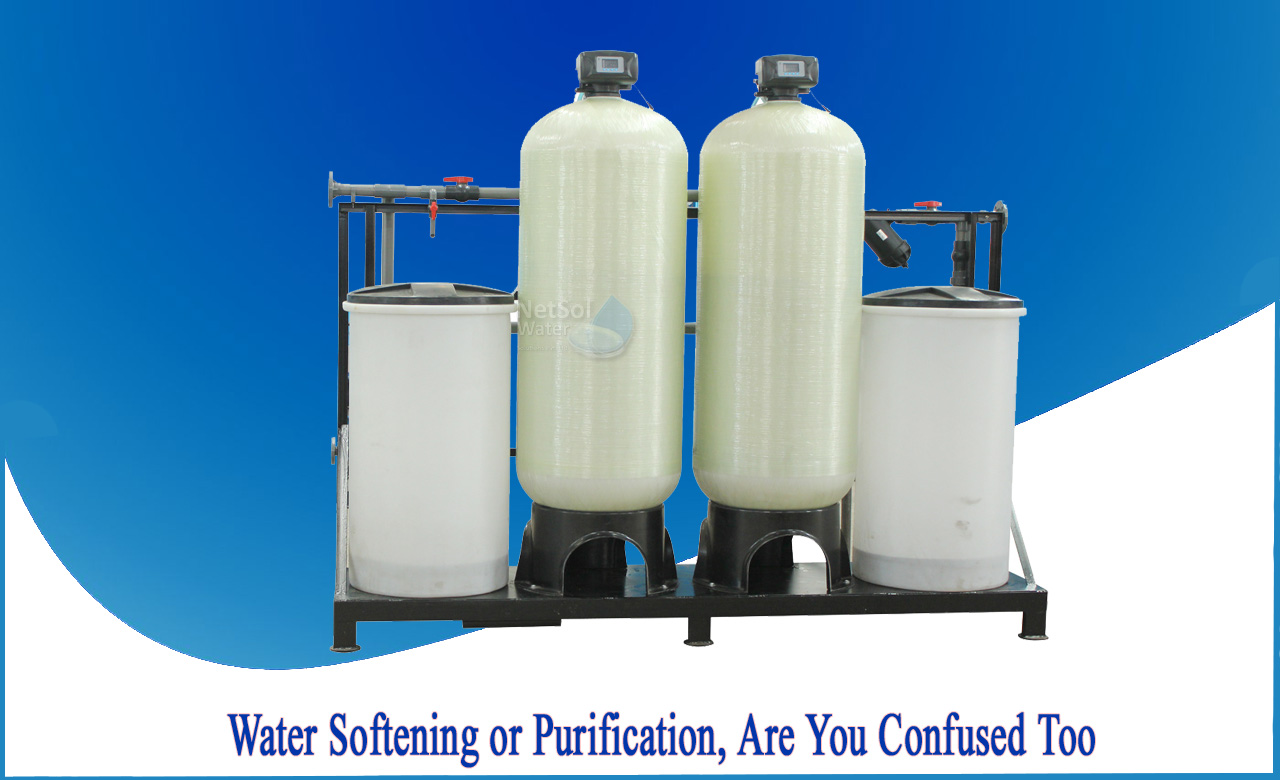What are the difference between Water Softening and purification?
WHAT DO YOU MEAN BY A WATER SOFTENING PROCESS?
Water softening is the process of removing dissolved calcium and magnesium salts from water that cause hardness. Softened water, unlike hard water, does not form insoluble scale or precipitates in pipes and tanks, nor does it interfere with cleaners such as soap. Water softening is thus essential in many industries, and small water-softening units are used in many countries' homes.
Water softening is accomplished through the addition of chemicals that form insoluble precipitates or through ion exchange. Ammonia, borax, calcium hydroxide (slaked lime), or trisodium phosphate are some of the chemicals used for softening on a small scale, usually in conjunction with sodium carbonate (soda ash).
To remove the precipitates, the lime-soda method of water softening must be followed by sedimentation and filtration. Softeners effectively remove HARDNESS, resulting in the use of less soap and detergent, less water spotting on showers and dishes, and the cleaner feeling that people seek.
Water can be chemically softened on a large scale by the addition of just enough lime to precipitate the calcium as carbonate and the magnesium as hydroxide, whereupon sodium carbonate is added to remove the remaining calcium salts.
WHAT DO YOU MEAN BY WATER PURIFICATION?
The process of removing undesirable chemicals, biological contaminants, suspended solids, and gases from contaminated water is known as water purification. The goal is to create water that is suitable for a specific purpose. The majority of water is disinfected for human consumption (drinking water), but water purification can also be designed to meet the needs of medical, pharmacological, chemical, and industrial applications.
WATER SOFTENING OR WATER PURIFICATION, WHICH IS PERFECT?
When it comes to water, there is a lot to learn. There is a wealth of knowledge involved in removing chemicals and minerals from water, regardless of how they got there in the first place. If you're on a well, you're dealing with constantly shifting groundwater levels. If you use water from your city or municipality, you're dealing with safe cleansing agents or minerals, as well as additives like fluoride for dental health.
If perfect drinking water is your ideal water solution, a reverse osmosis system is the best option. These are commonly referred to as RO systems, and they can be installed in nearly any situation! For the perfect glass of water, they filter out more than 90-99 % of the contaminants in the water! The water is ideal for cooking, pets, kids, and even tropical fish. Depending on the quality of your starting water, there are 3-stage and 4-stage reverse osmosis filters. In terms of maintenance, there is a pre-filter that must be changed every 6 months and a post-filter that must be changed annually. The main media filter also needs to be changed, but this varies greatly depending on usage. The more you use a RO filter, the happier the media filter will be!
CONCLUSION
It is entirely up to you whether you want the water cleansed or softened.
NETSOL WATER provides a variety of solutions to your water-related problems. We're happy to provide whatever solution you're looking for, from softeners to remove hardness to filter media to remove specific particulate, to reverse osmosis systems to provide ideal drinking water, to sanitising systems to remove odours and bacteria.
Netsol Water is Greater Noida-based leading water & wastewater treatment plant manufacturer. We are industry's most demanding company based on client review and work quality. We are known as best commercial RO plant manufacturers, industrial RO plant manufacturer, sewage treatment plant manufacturer, Water Softener Plant Manufacturers and effluent treatment plant manufacturers. Apart from this 24x7 customer support is our USP. Call on +91-9650608473, or write us at enquiry@netsolwater.com for any support, inquiry or product-purchase related query.



